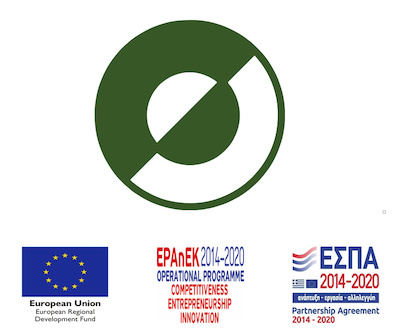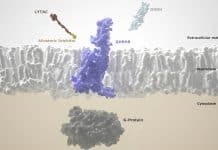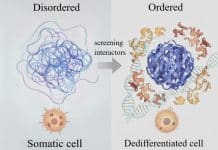 Atmospheric pollution in cities is an important and complex problem. The main sources of gaseous and particulate pollutants are vehicles, industry, central heating and other human activities. The need for stricter environmental quality controls has been widely recognized as an increasing number of diseases, especially respiratory problems, which are linked to atmospheric pollution.
Atmospheric pollution in cities is an important and complex problem. The main sources of gaseous and particulate pollutants are vehicles, industry, central heating and other human activities. The need for stricter environmental quality controls has been widely recognized as an increasing number of diseases, especially respiratory problems, which are linked to atmospheric pollution.
The aim of “EMISSION” is to develop an IoT platform for the monitoring and recording of atmospheric conditions in urban environments, mainly through a wireless network of sensors that will be supplementing existing infrastructure.
“EMISSION” will use integrated and advanced sensors and applications (web and mobile) and is intended to cover ongoing problems or gaps of existing, regulatory monitoring facilities.
The project’s work packages include requirement analysis of the integrated platform, wireless network sensors development and deployment, design of principles and measurement system specifications, development of basic research guidelines as well as assessment reports in real-world applications.
At the same time, the work planned will analyze the topology and architecture appropriate to support these networks and present the capabilities that the user can exploit through the EMISSION mobile application.
 Finally, the project includes extensive tests at pilot and operational level for each subsystem, to identify and correct dysfunctions and problems to ensure full compliance with the proposed specifications. The evaluation of the system will be carried out by executing well-defined functional scenarios that will be specially designed.
Finally, the project includes extensive tests at pilot and operational level for each subsystem, to identify and correct dysfunctions and problems to ensure full compliance with the proposed specifications. The evaluation of the system will be carried out by executing well-defined functional scenarios that will be specially designed.
The benefits deriving from the project implementation are divided into two levels.
The first level includes the:
a) organization of day-to-day activities, whether they are economic activities (travel, transport), leisure time or evolve around public health and safety
b) information sharing before/during emergencies (weather and pollution related), contributing to the civil protection efforts
c) provision of environmental information to support the citizens in participatory processes (crowd sourcing).
The second level includes the enhancement of the Decentralized Administration’s actions and its indirect benefits for the citizen.
The aim is to provide accurate operational data to the Administrations (Environment, Water, Civil Protection, Rural Development, etc.) in a timely manner, in order to perform their decisive and effective tasks. The main expected results of the project are:
- Extending the atmospheric pollution-monitoring network to include more representative and extensive coverage;
- Optimization of pollutant monitoring tools using technologically advanced equipment and software;
- Contributing to compliance to air pollutant-monitoring regulation;
- Directly informing the public through the information platform and mobile application.
In terms of exploiting the results, the industrial partners will seek to include the hardware and software applications developed within the project to enhance their commercial activities. In particular, the sale and promotion of applications would be directed at individual citizens, municipalities, environmental protection organizations and other companies (mainly industries). Finally, research institutes will further expand their applied research on atmospheric composition studies using also applications based on IoT technology.
Research Group:
- Ilias Stavrakas, Professor, Department of Electrical and Electronic Engineering, University of West Attica, Team Coordinator
- Dimos Triantis, Professor , Department of Electrical and Electronic Engineering, University of West Attica,
- Konstantinos Moutzouris, Professor , Department of Electrical and Electronic Engineering, University of West Attica,
- George Hloupis, Assistant Professor , Department of Electrical and Electronic Engineering, University of West Attica,
- Odysseas Tsakiridis, Assistant Professor , Department of Electrical and Electronic Engineering, University of West Attica,
- Ioannis Christakis, Lab Teaching Staff, Department of Electrical and Electronic Engineering, University of West Attica,
Project Τitle: “Environmental monitoring integrated system using an IoT network”
ACRONYM: EMISSION
Project Duration: 2018 – 2021
Project URL: http://edml.uniwa.gr/en/emission/
Project Framework & Funding:
«Co‐financed by the European Union and Greek national funds through the Operational Program Competitiveness, Entrepreneurship and Innovation, under the call RESEARCH – CREATE – INNOVATE (project code: Τ1ΕΔΚ-00242)»
Funding: 821.002,40 €
Principal Investigator (UNIWA): Professor Ilias Stavrakas, Email: ilias@uniwa.gr, Tel: +30 210-5387209
Consortium – Partners:
- Electronic Devices and Materials Lab, University of Wes Attica
- Space Hellas, SA
- Draxis Environmental Technologies, SA
- ENCO ltd
- National Observatory of Athens
Research Publications
- T. Migos, I. Christakis, K. Moutzouris, I. Stavrakas, On the evaluation of low-cost PM sensors for air quality estimation, , 8th International Conference on Modern Circuits and Systems Technologies (MOCAST), 978-1-7281-1184-1/19/$31.00 ©2019 IEEE.
- N. Papadakis, D. Stouraitis, A. Bartzas, E. Gerasopoulos, G. Grivas, E. Athanasopoulou, I. Stavroulas, P. Syropoulou, A. Agrafiotis, I. Christakis, T. Migos, I. Stavrakas and K. Ioannidis, EMISSION: Environmental monitoring integrated system using an IoT network, 23rd International Transport and Air Pollution Conference (TAP 2019), Thessaloniki, Greece.
- I. Christakis, G. Hloupis, O. Tsakiridis, I. Stavrakas. Low cost sensor implementation and evaluation for measuring NO2 and O3 pollutants. International Conference on Modern Circuits and Systems Technologies (MOCAST) on Electronics and Communications, Bremen, Germany, 2020.
- I. Zyrichidou, P. Syropoulou, S. Tekes, G. Grivas, I. Stavroulas, E Athanasopoulou, E. Gerasopoulos, I. Christakis, T. Migos, I. Stavrakas, G. Hloupis, O. Tsakiridis, K. Ioannidis, N. Papadakis City-Wide Air Quality Measurement System Based on IoT Network, 12th International Conference on Air Quality – Science and Application, Thessaloniki, Greece, 2020.












